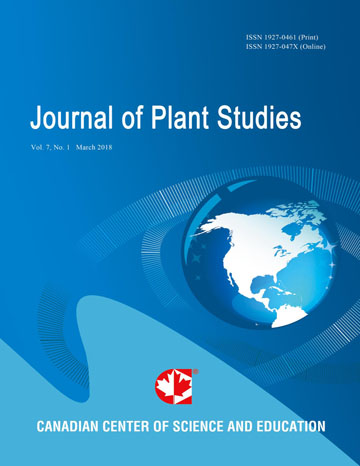Medicinal Plant Species Used to Treat Tonsillitis in Ethiopia: A Systematic Review
- Firew Bekele Abebe
- Melese Mengistu Asfaw
- Tasisa Temesgen Tolossa
Abstract
In various areas of Ethiopia, different plant species have been reported having a medicinal role for ailment tonsillitis. However, the ethnomedicinal information on those medicinal plant species that cure the ailment is not summarized in a way that gives general information and initiates further study. Therefore, the objective of this review paper was to summarize the ethnomedicinal information about medicinal plant species that used to treat tonsillitis in Ethiopia. The result of the review indicated that herbs and leaves are the most utilized growth forms and part of the plants respectively during remedy preparation for the ailment tonsillitis in Ethiopia. Similarly, fresh plant materials, and water are the most applied condition of plant parts and diluent added correspondingly. Chewing and oral route of application are the most widely used methods of remedy preparation and administration correspondingly, for the ailment in the country. Utilization of herbs and leaves can be seen as an advantage from the conservation point of view of medicinal plant species that used to treat the ailment since herbs can be cultivated when they are in short supply and are also available as compared to other growth forms. Similarly, use of leaves can reduce damage to the medicinal plant species as compared to the use of other plant parts such as roots. However, the utilization of fresh materials should be reduced as much as possible. Rhamnus prinoides L'Hér. and Zingiber officinale Roscoe are the most commonly used medicinal plant species for the ailment in Ethiopia.
- Full Text:
 PDF
PDF
- DOI:10.5539/jps.v9n1p34
Index
- AGRICOLA
- CAB Abstracts
- CABI
- CAS (American Chemical Society)
- CNKI Scholar
- Elektronische Zeitschriftenbibliothek (EZB)
- Excellence in Research for Australia (ERA)
- Google Scholar
- JournalTOCs
- Mendeley
- Open policy finder
- Scilit
- Standard Periodical Directory
- Technische Informationsbibliothek (TIB)
- WorldCat
Contact
- Joan LeeEditorial Assistant
- jps@ccsenet.org
